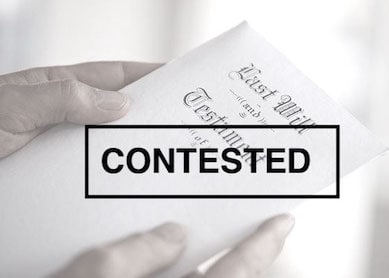Grounds for Contesting a Will

The grounds for contesting a will in New York are as follows:
Undue Influence – manipulating a person or pressuring them to make a will in a way that overpowers them and makes them bend to the influencer’s will. This is the most commonly used ground in real-life New York City will contests.
Fraud – knowingly making a false statement to the person who made the will which caused him to execute a will that disposed of his property in a manner differently than he would have in the absence of that statement. This is one of the grounds of contesting a will that you are required to plead with particularity. It has four elements, which your estate attorney will know.
Duress – use of force, false imprisonment or threats … to compel someone to act contrary to his/her wishes or interests. This is a ground for contesting a will that is harder to prove than the other grounds. A lot will depend on how the proponent of the will looks in a deposition. If he looks like a violent or angry person, then there is a bigger chance that this grounds to contest a will succeeds.
Lack of Capacity – the decedent did not understand
- what they own
- who their relatives and friends are
- what is in their will.
Lack of capacity can arise due to dementia, Alzheimer’s, mental illness, trauma, and medication. To put it simply, the person was not well enough to make a will. The grounds for contesting a will based on lack of capacity depend on medical evidence, such as medical records and testimony under oath of the decedent’s healthcare provider.
Forgery – signing the name of the person who supposedly “made the will” or having someone else pretend to be that person and sign the “will.” This is grounds to contest a will that has to be proved by the use of a forgery expert. The expert will identify if the signature on the will was traced or copied, or if the pages were modified chemically, physically or in some other fashion.
Improper Execution – to meet the requirements of formal execution, the will has to
- be signed by the testator (or in their direction in their presence)
- the signature must be at the end of the will
- the will had to be signed in the presence of each witness
- the testator must have communicated to the witnesses that they are witnessing a will
- two witnesses are required
- the entire ceremony must have been completed within 30 days of the testator’s signature
Failure to properly execute is grounds for contesting a will in New York.
Revocation – the will was canceled by the person who originally made it.
Read our thorough article if you would like to know more about how to contest a will in New York. If you would like legal representation in a will contest, you can get in touch with me. I litigate New York will contests for over a decade. Call the Law Offices of Albert Goodwin at (718)-509-9774, New York estate, guardianship, wills, trust, Medicaid and probate lawyer, and make an appointment to discuss your will contest.
